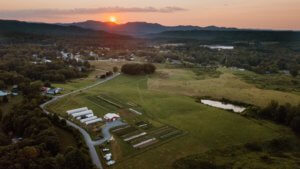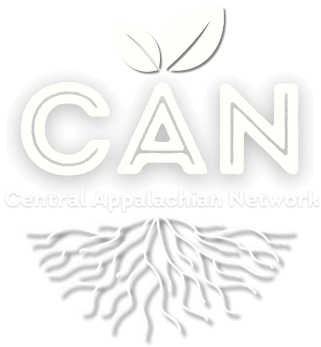
How to Use SFF Funding For Your FARM
Imagine the sun doing double duty on your farm by growing your agricultural products while also powering your equipment and infrastructure. Installing solar power solutions is a bonus for your bottom line.
Get direct funding & assistance for your farm’s solar projects
The Appalachian Solar Finance Fund https://solarfinancefund.org/index.php/how-it-works/ jump-starts emerging local solar markets in Central Appalachia through competitive grant funding and technical assistance.
Commercial farms and agricultural businesses in Central Appalachia are encouraged to apply for technical assistance support from SFF to build their next solar project.
Nonprofit farms and other public institutions can apply for a direct grant sub-award to offset up to 20% of the total project cost. If you have a BIG dream, let us know! The SFF can help get your solar project off the ground by unlocking funding and financing opportunities for high-need, high-impact projects.
Do you need short-term solar financing?
The Inflation Reduction Act of 2022 (IRA) significantly expands federal funding support for solar energy on farms in two ways: It extends and expands the federal Solar Investment Tax Credit (ITC) to offset 30% of a solar project’s total cost; and it greatly increases funding to the USDA Rural Energy for America Program (REAP), allowing that agency to raise its REAP grant cost share from 25% to 40% of total project cost.
Given these major new developments in federal funding support for solar energy, the SFF anticipates an increased need for short-term solar financing to cover the time gap between project construction and reimbursement of federal tax credits and USDA grant payments. To fill this gap, the SFF can provide short-term bridge loans for solar projects on local anchor institutions via our partner organization, regional blended capital platform Invest Appalachia (IA).
The SFF and IA also have developed a flexible suite of solar credit enhancements to help leverage large-scale repayable investment into promising solar projects that face financing obstacles related to risk migration, cost of capital, or timing of investment. Products include unsecured zero-interest loans, interest-rate buy-downs, and loan guarantees. They are expected to be repaid but are designed to absorb risk and/or cost to help secure the overall capital stack for an impactful project.
Get inspired! How could these solar projects help your agricultural business?
- Solar-powered fence charging, water pumping, greenhouse fans, or irrigation equipment
- Solar + storage for emergency backup power
- Co-location of ground-mounted solar arrays + crops or grazing pasture = “agrivoltaics” https://www.climatehubs.usda.gov/hubs/northeast/topic/agrivoltaics-coming-soon-farm-near-you
Apply for funding or technical support for solar projects
With so many funding and financing solutions, why not dream up a solar project for your farm today? The SFF accepts applications on a rolling basis. Get all the details here – https://solarfinancefund.org/index.php/apply/.
GRANTEE HIGHLIGHT
 New Roots Community Farm https://www.newrootscommunityfarm.com/whowe is a diversified, women-led nonprofit farm in Fayetteville, West Virginia. New Roots serves as a local food aggregation and distribution site and provides various community engagement, training, and educational opportunities. New Roots Community Farm uses its acreage as an agricultural resource center, demonstrating best practices in technical production and farm operations to increase Appalachian small-farm viability.
New Roots Community Farm https://www.newrootscommunityfarm.com/whowe is a diversified, women-led nonprofit farm in Fayetteville, West Virginia. New Roots serves as a local food aggregation and distribution site and provides various community engagement, training, and educational opportunities. New Roots Community Farm uses its acreage as an agricultural resource center, demonstrating best practices in technical production and farm operations to increase Appalachian small-farm viability.
The SFF provided funding for a 13-kW roof-mounted solar array at New Roots’ production and processing facility. This on-site solar energy generation will save the farm $52,000 in lifetime energy costs.
“The Appalachian Solar Finance Fund made New Roots Community Farm’s renewable energy capital improvement project a reality by providing the last bit of funding needed to install a 13 kW rooftop solar array, allowing us to demonstrate how renewables are a feasible part of diversified small-farm enterprises in West Virginia and Central Appalachia,” said Gabe Peña, New Root’s Co-Director/Director of Program Development.
